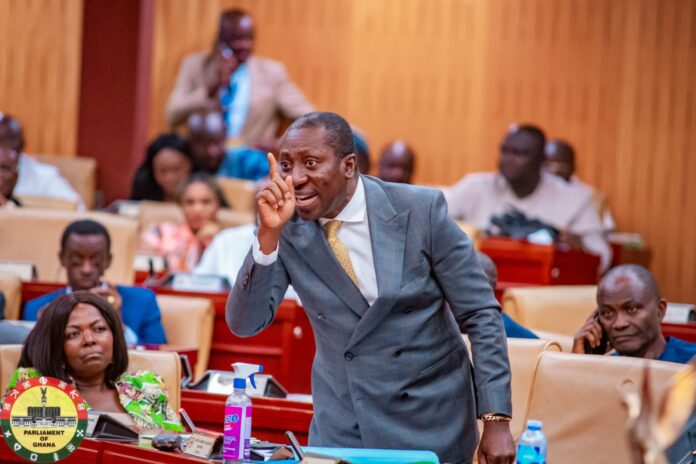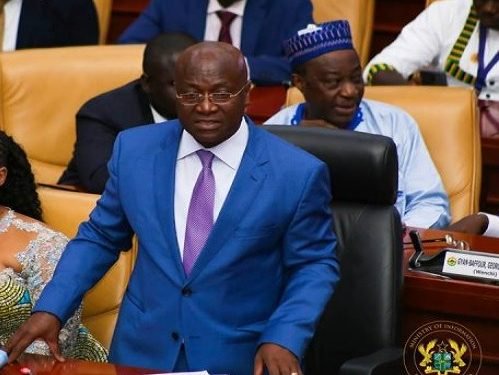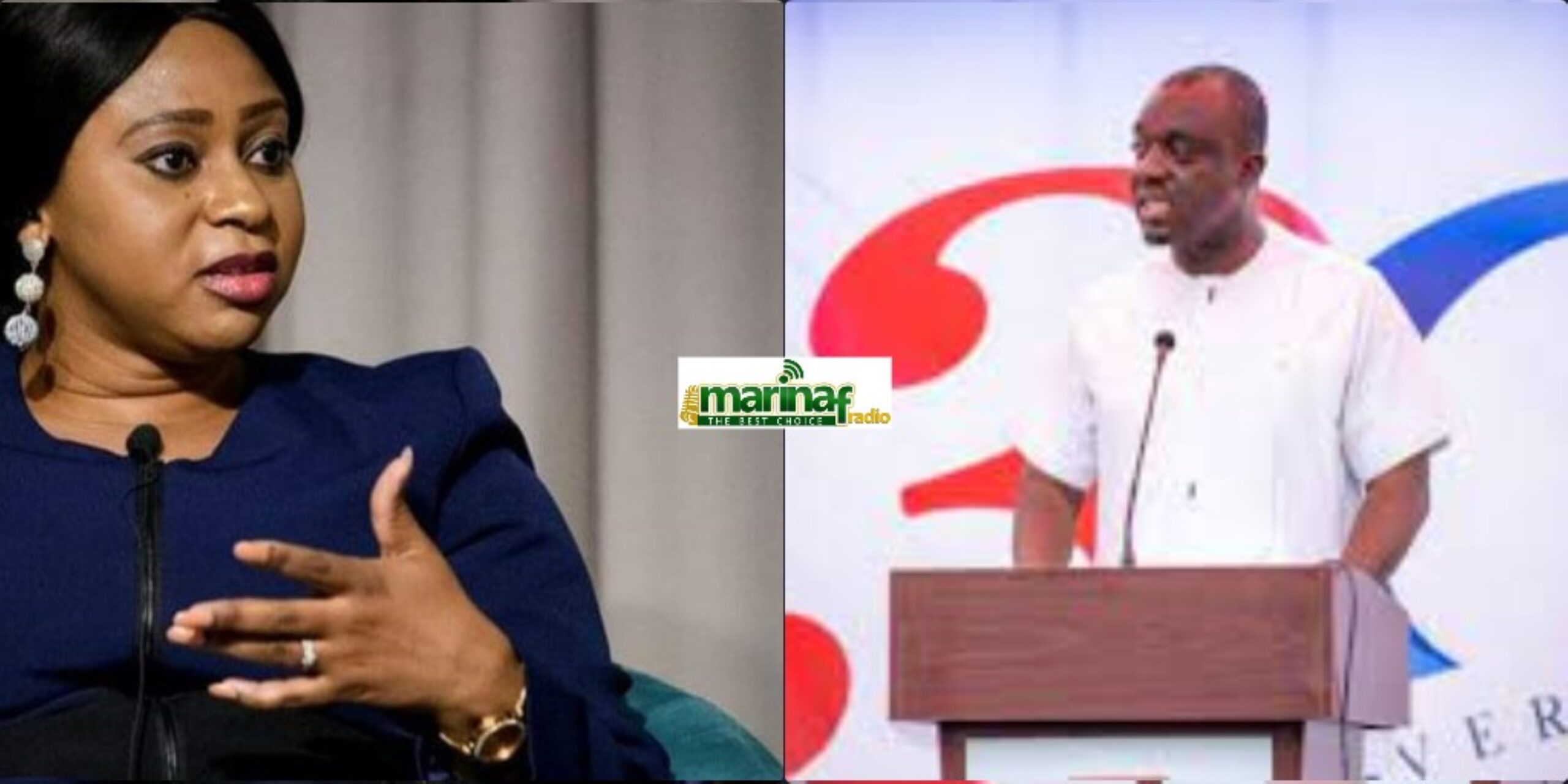
Ghana’s political arena has long suffered from a dangerous mindset: the view that public office is a reward rather than a responsibility. And Alexander Afenyo-Markin’s recently repeated warning to NDC MPs about John Dramani Mahama’s promise of 60 ministers perfectly illustrates this warped perspective.
Speaking at the dissolution of the 8th Parliament, Alexander Afenyo-Markin warned that many NDC MPs would find themselves without ministerial appointments due to Mahama’s commitment to reducing the size of government.
Now in the corridors of Ghana’s Parliament House, where political posturing and rhetorical sparring are as routine as tea breaks, Afenyo-Markin’s comments could be swept under the bus as just that. But no, this reveals more about him and the New Patriotic Party (NPP).
His assertion that the National Democratic Congress (NDC) MPs should be worried about President (yes, President because I am tired of writing President-elect, when in a few hours, he would be handed the role fully) John Dramani Mahama’s promise to run a lean government with only 60 ministers is not just a casual political jab — it is a glaring exposé of the warped mentality that has plagued Ghana’s political class, particularly within the New Patriotic Party (NPP).
The Effutu MP laid out a grim arithmetic for his political opponents: with 16 regional ministers already taking up positions, that would leave only 44 spots for other appointments, creating fierce competition within the NDC ranks. He went further to suggest that even board positions would be hard to come by, as “non-MPs” within the party would also be vying for these coveted roles.
Let’s pause for a moment to digest what Afenyo-Markin is really saying here.
In his mind—and evidently in the minds of many within the ranks of the NPP—the primary incentive for entering Parliament is to secure a ministerial appointment. Serving as a legislator, representing one’s constituents, and holding the executive accountable are apparently secondary concerns.
The role of an MP, it seems, is viewed as a mere stepping stone to the more lucrative and influential ministerial portfolios.
This mentality is not only disappointing; it is dangerous.
It reveals a political culture that prioritizes personal advancement and patronage over public service and governance. It explains why successive governments have bloated the executive with unnecessary appointments, turning ministries into reward schemes for party loyalists rather than functional units of governance. And it sheds light on one of the fundamental reasons why the Akufo-Addo administration suffered a massive loss in the last elections—a disillusioned electorate that grew tired of seeing political office treated as a vehicle for self-enrichment.
The Akufo-Addo administration, particularly in its second term, epitomized this flawed approach to governance.
With more than 110 ministers and deputies, the NPP government was rightly criticized for its excessive size. Ministries were carved up to create new portfolios, not out of necessity, but to accommodate the swelling ranks of party faithful demanding their share of the national cake. Board appointments became the currency of loyalty, handed out to cronies without regard for competence or performance. Each appointment came with offices, staff, vehicles, and benefits – all funded by taxpayers already struggling under economic hardship.
The result was an administration bogged down by inefficiency, plagued by scandals, and ultimately punished at the polls.
Afenyo-Markin’s comments suggest that he expects the NDC to repeat these mistakes. But Mahama’s promise to run a lean government is a direct repudiation of this culture of patronage. It is a recognition that Ghana cannot afford the luxury of an oversized executive. It is a commitment to prioritizing efficiency, accountability, and service delivery over political expediency.
Of course, implementing this promise will not be without its challenges. The NDC must navigate the internal pressures and expectations of its members, many of whom will indeed be eyeing appointments. But this is where Mahama has the opportunity to set a new standard for governance. By prioritizing competence and merit over political loyalty, by resisting the urge to placate every faction with a ministerial position or board seat, he can demonstrate that public office is about service, not reward.
Afenyo-Markin’s warning of potential infighting within the NDC caucus should be seen for what it is—a projection of his own party’s failings.
The NPP’s approach to governance has been one of appeasement, using public appointments as a tool to maintain party unity and suppress dissent. But this strategy has proven unsustainable. It has led to bloated bureaucracies, inefficient service delivery, and a disillusioned populace.

The NDC must reject this model. It must seize this moment to redefine what it means to be an MP in Ghana. Parliamentarians should not be preoccupied with securing ministerial appointments; they should be focused on their legislative duties, on representing their constituents, on holding the executive accountable. The role of an MP is not to serve at the pleasure of the President; it is to serve the people who elected them.
Afenyo-Markin’s comments are a reminder of the work that lies ahead. The NDC must not allow itself to be dragged into the same cycle of patronage politics that has plagued the NPP. It must rise above the politics of personal gain and demonstrate that governance can be about service, about improving the lives of Ghanaians, about building a better future.
The electorate has sent a clear message: they are tired of politics as usual. They are tired of seeing public office treated as a prize rather than a responsibility. The NDC has been given a mandate to chart a new course. It must not squander this opportunity.
In the end, Afenyo-Markin’s remarks say more about him and his party than they do about the NDC. They reveal a mindset that has no place in modern governance. They expose a political culture that must be dismantled if Ghana is to move forward. And they offer the NDC a clear challenge: to prove that politics can be about service, not self-interest.
The path ahead will not be easy. There will be resistance, both from within and outside the party. But if the NDC can stay the course, if it can prioritize the needs of Ghanai ans over the desires of party members, it can drive Afenyo-Markin and his ilk to shame. It can show that a lean government is not a threat, but an opportunity—an opportunity to build a more efficient, more accountable, more effective government.
And in doing so, it can restore faith in our democracy. It can remind us all that public office is a public trust, not a personal entitlement. It can set a new standard for what it means to serve. And it can prove that true leadership is not about the positions you hold, but the difference you make.
Source : DailyNewsGhana




